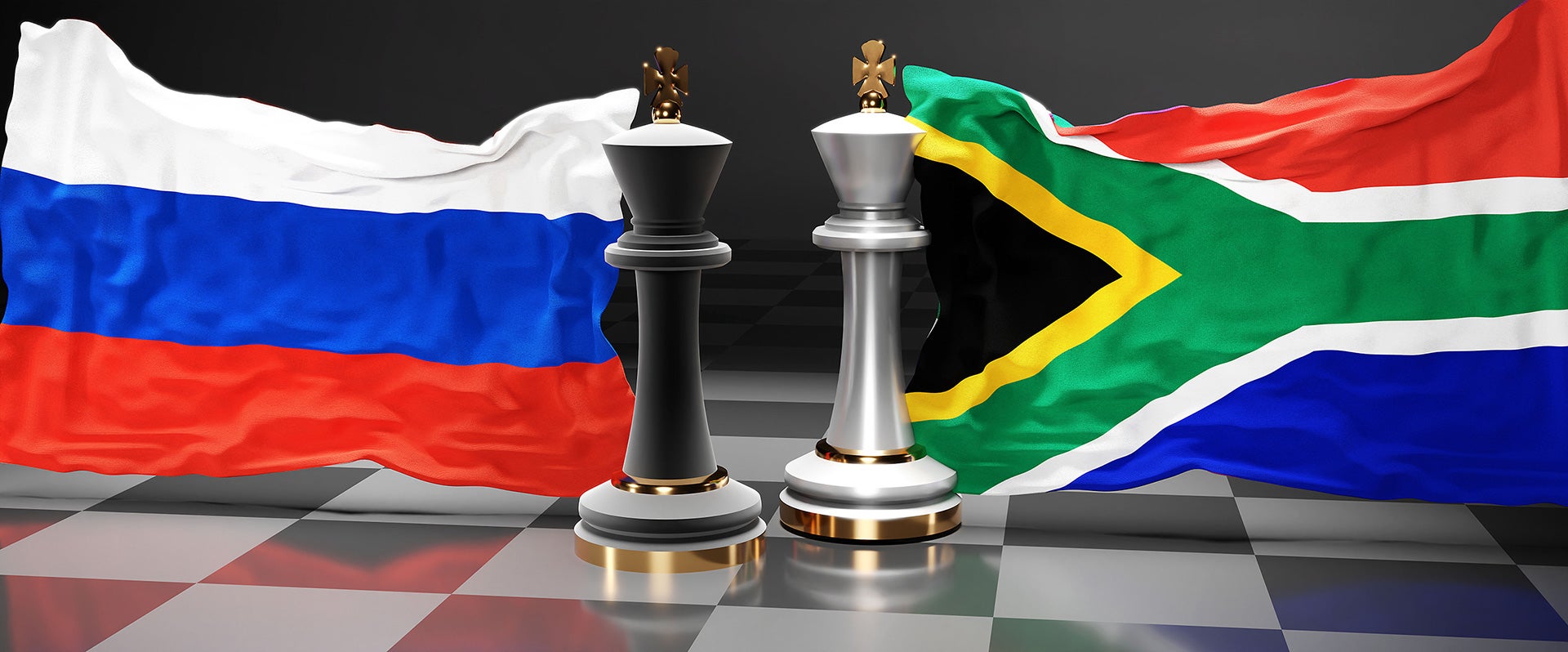
“If I were advising, I would think that it would be unwise for South Africa to conduct this exercise, especially in the vicinity of the anniversary.” That’s University of Maryland Robert H. Smith School of Business William E. Mayer Chair Professor of Finance, Lemma Senbet reacting to South Africa’s participation in naval exercises with Russia and China. They’re happening in the Indian Ocean, just off the South African coast. Many western countries including the U.S. and members of the European Union (EU) are unhappy about it, particularly in light of the fact that the exercises are occurring amid the first anniversary of the Russian invasion of Ukraine (February 24).
There’s been much speculation about why South Africa would do this. Is it risking its many lucrative trade deals with the U.S. and the EU, which are several times more valuable than its trade deals with Russia? Senbet says the answer is complex.
“First of all, I presume that most South Africans would be opposed to the invasion of a weaker country by a stronger one. I think there’s no question about that.” And some groups within South Africa oppose their country’s decision to proceed with the military exercises. Senbet says “we cannot lose sight of the apartheid history though. That’s the time when the African National Congress (ANC), which is still the leadership group now (in South Africa), was getting support from the East, from the then-Soviet Union and China, and there was not much western support.” The American government only supported comprehensive economic sanctions in the mid-1980s – decades after the apartheid regime took power.
There’s also the issue of South Africa’s partnership in a powerful economic bloc called BRICS. It includes Brazil, Russia, India, China and South Africa. Senbet says that relationship is in the background of the naval exercises. He indicates it’s not just about South Africa’s relations with Russia, but with China and India as well. “China is the largest trading partner in Africa. Tourism is also a big deal in South Africa.” China is a huge tourism market for the country, as is India. And this is in addition to China’s trade and investment. “So the extent to which they (South Africa) could suffer economic consequences is mitigated by their participation in this economic partnership.”
The western response to the invasion of Ukraine is mainly about protecting the international order, according to Senbet. But he says “there are many countries, especially in the Global South, that think the order doesn’t work for them.” South Africa is not the only African country to take a neutral stance in the Russia-Ukraine war. Several others have. “The U.S. and EU need to pay more attention to the rest of the globe, who are the lower-income, lower-developed economies that actually feel left out of the order. The order has to be inclusive.”
Senbet feels the U.S.-Africa Leaders Summit was a step in the right direction. He was tapped by White House officials to help shape the summit agenda. The event took place last December. “President Biden has made a very strong commitment to having the African Union (AU) be a member of the G-20 in addition to the current membership of the EU. That’s another good step.”
First lady Jill Biden is visiting Namibia and Kenya this week as part of a five-day trip to Africa focused on empowering women and young people and addressing food insecurity. It’s her first visit to the continent as first lady. The Associated Press reports the trip is a push by the U.S. to step up engagement with Africa as a counterweight to China’s influence there.
Media Contact
Greg Muraski
Media Relations Manager
301-405-5283
301-892-0973 Mobile
gmuraski@umd.edu
Get Smith Brain Trust Delivered To Your Inbox Every Week
Business moves fast in the 21st century. Stay one step ahead with bite-sized business insights from the Smith School's world-class faculty.